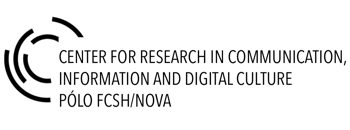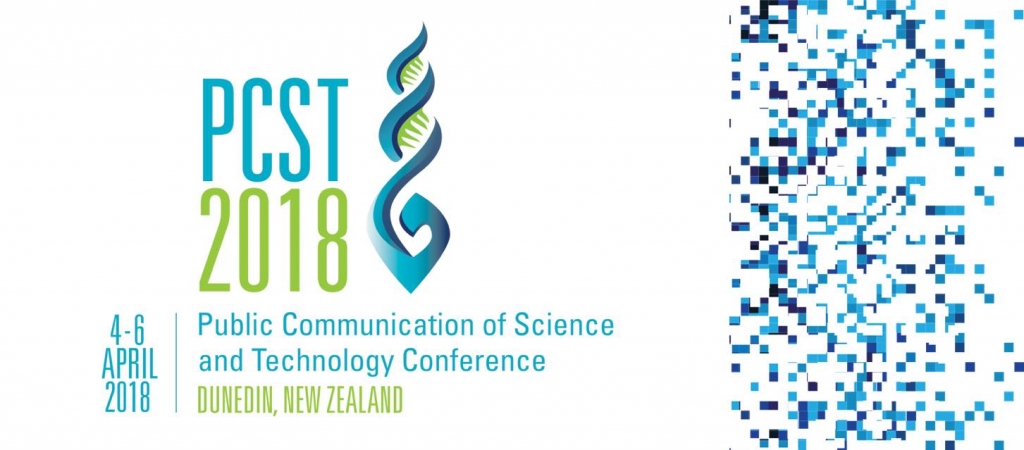Organizador: Labcom.IFP, Universidade da Beira Interior
Data das Jornadas . 26 -27 de Outubro
Local: Universidade da Beira Interior (UBI), Covilhã
O Labcom.IFP, Universidade da Beira Interior, Portugal, convida todos os investigadores interessados a submeterem propostas de textos a serem apresentados às Jornadas Internacionais Patologias e Disfunções da Democracia em Contexto Mediático, que se realizam nos dias 26 e 27 de Outubro na Universidade da Beira Interior, Covilhã, Portugal.
O objetivo destas Jornadas é reunir os investigadores de Ciências da Comunicação e de áreas afins (Ciência Política, Teoria Política, Filosofia Política, Sociologia Política e outras), com particular relevo para os interessados em comunicação política em torno de um eixo unificador comum: as patologias e disfunções da democracia, em contexto mediáticos, em diferentes vertentes do seu envolvimento com os media tais como: a representação dessas patologias e disfunções; o contributo ou, ao invés, o prejuízo dos media para o funcionamento das instituições democráticas; a interferência dos agentes politicos na informação jornalística; a relação entre media e instituições políticas nos processos de construção da opinião pública, etc.
As jornadas internacionais centram-se em três temas que serão abordados em três painéis plenários e e em três conjuntos de sessões paralelas:
– Comunicação e silêncios: ocultações, fatos alternativos e “fake news” – avaliar fenómenos de visibilidade /invisibilidade, silenciamento e ocultação nos processos de deliberação e de decisão política.
– Os desafios da participação política na era da “pós verdade” – Como decorre a participação e deliberação política em face da proliferação de informação estrategicamente manipulada.
– Patologias e disfunções da democracia: escândalo, corrupção – Analisar o impacto de fenómenos geralmente apontados como patológicos, disfuncionais e desviantes no processo democrático, bem como a sua representação mediática.
Privilegiam-se trabalhos empíricos e teóricos que envolvam debates politicos relativamente recentes como sejam, a título de exemplo, a criação da “maioria de esquerda” (ou “geringonça”) em Portugal; o Brexit; o impeachement brasileiro; as eleições americanas, a formação da administração Trump; os processos judiciários e os escândalos económicos e politicos vários.
Serão bem-vindas abordagem empíricas e de estudos e de caso bem como o abordagens teóricas complementadas com exemplos. Em termos dos paradigmas aplicáveis exemplificam-se abordagens deliberativas, críticas, participativas, funcionalistas, as abordagens influenciadas pelas teorias do agendamento, do enquadramento, do espiral do silêncio, entre outros passíveis de aplicação. As análises e as reflexões podem incidir em processos comunicacionais on line ou off line.
A chamada de trabalhos destina-se à seleção de 45 papers que serão apresentadas em três conjuntos de sessões paralelas. Os textos serão publicados em 2 Livros de actasOrganizadores dos Livros: Anabela Gradim, António Bento, João Carlos Correia, Helder Prior.
Prazos e Datas.
As datas prioritárias para os envios de submissões são as seguintes:
Envio de Resumos (Abstracts)- Até dia 30 de Abril.
Comunicação de resultados – 30 de Junho
Inscrição até 15 de Agosto.
Entrega do texto final para publicação – 26 e 27 de Outubro, data de realização das Jornadas,
Resumo alargado (Expanded Abstract) – 600 palavras com identificação do tema, da metodologia e da pertinência para a mesa em que se inscreve
Os textos finais deverão ter 14 páginas, devendo o texto ser escrito em Times New Roman, corpo 12 TMN cerca de 6000 palavras.APA
Serão aceites trabalhos em Português (em qualquer das ortografias praticadas nos países falantes da língua), Inglês e Espanhol.
As dúvidas poderão ser enviados para os seguintes mails:
jcorreia@ubi.pt;
jcfcorreia@gmail.com;
agradim@ubi.pt
agradim@gmail.com
helder.prior@gmail.com
Brevemente, será lançada uma plataforma para a inserçao das submissões e dos trabalhos.
Taxa de Inscrição:
Professores e Investigadores Doutorados – 80 euros
Alunos de Licenciatura, Mestrado e Doutoramento – 40 Euros
Investigadores, Professores e Alunos da Universidade da Beira Interior não pagarão inscrição.
A inscrição assegura certificado de participação nas Conferências, materiais de apoio, publicação no Livro de Actas e almoços durante os dias das Jornadas.
Data das Jornadas. 26 -27 de Outubro
Programa Provisório:
Dia 26 de Outubro
9.30 Sessão de Abertura
10 horas – Sessão de Abertura com uma conferência sobre o tema Media e Populismo
11. 00 – 12.45. – Mesa Plenária 1) Comunicação e silêncios: fatos alternativos, fake news – Avaliar fenómenos de visibilidade /invisibilidade, silenciamento e ocultação nos processos de deliberação e de decisão política.
13.00 – Almoço
14.30 – 15.45 Sessão Plenária 2 – Os desafios da participação politica na era da “pós verdade” – Como decorre a participação e deliberação política em face da proliferação de informação estrategicamente manipulada.
16,00 – Pausa para Café
16. 15- 18.15 Sessões paralelas (3*5)
Sessão paralela 1
Temas: Comunicação e Silêncios: ocultações, fatos alternativos, fake new.
Sessão Paralela 2
Os desafios da participação na era da pós-verdade
Sessão paralela 3
Patologias e disfunções da democracia: escândalo, corrupção e campanha negativa
Dia 27 de Outubro
9.30 – Mesa Plenária 3
Patologias e disfunções da democracia: escândalo e corrupção – Analisar o impacto de fenómenos geralmente apontados como patológicos, disfuncionais e desviantes no processo democrático, bem como a sua representação mediática.
11.30 – Coffe Breack
11, 45 -13 – Paralelas (três mesas de 5 pessoas )
Sessão paralela 1
Comunicação e Silêncios:ocultações, fatos alternativos e ”fake news”
Sessão Paralela 2
Os desafios da participação na era da “pós-verdade”
Sessão paralela 3
Patologias e disfunções da democracia: escândalo, corrupção e campanha negativa
13, 15 – almoço
14, 15 – 16,00
Sessão paralela 1
Comunicação e Silêncios:
Ocultações, fatos alternativos, “fake news”;
Sessão Paralela 2
Os desafios da participação na era da pós-verdade
Sessão paralela 3
Patologias e disfunções da democracia: escândalo, corrupção e campanha negativa
16, 15 – Sessão de Encerramento- Paulo Serra (Coordenador do Labcom. IFP e Presidente da SOPCOM).
Duração 2 dias
Os palestrantes das sessões plenárias e as Comissões Científica, Organizadora e Executiva serão divulgadas oportunamente.
Os Organizadores
João Carlos Correia ( jcorreia@ubi.pt)
Anabela Gradim (agradim@ubi.pt)
Helder Prior (helder.prior@gmail.com)

